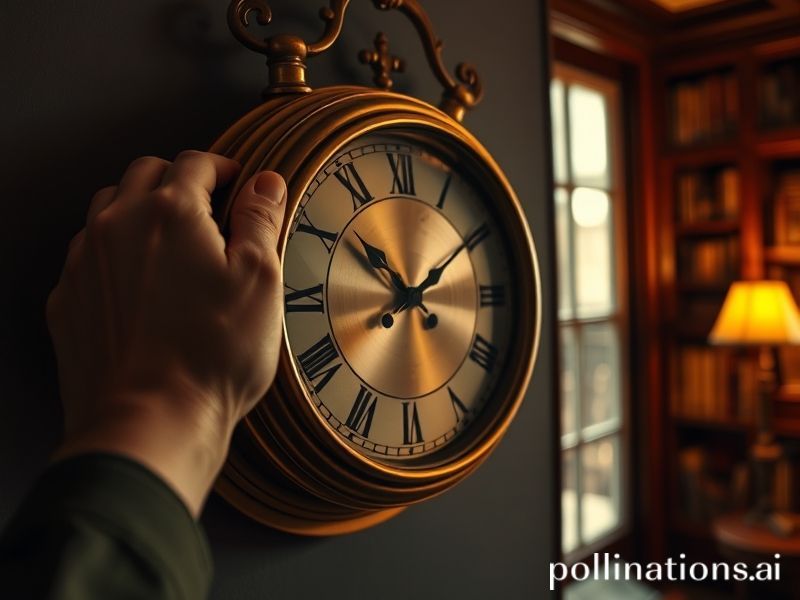Falling Back in Love: Why ‘Clocks Go Back’ is the Latest Global Obsession
**Title: “Falling Back in Love: Why ‘Clocks Go Back’ is the Latest Global Obsession”**
Alright, folks, gather ’round. It’s that time of the year again when we all collectively scratch our heads and ask, “Why do we do this to ourselves?” Yes, we’re talking about the bi-annual time change, specifically when the clocks go back. It’s not just a mundane shift in our schedules; it’s a global phenomenon that’s sparking conversations, memes, and even a bit of controversy. So, why is “clocks go back” trending worldwide, and what’s the big deal about gaining an extra hour?
**The Cultural Context: A Brief History of Time (Changes)**
First, let’s rewind (pun intended) to understand why we even do this. The practice of changing clocks twice a year dates back to the early 20th century. The idea was to save energy by aligning our wake-up times with natural daylight. Germany was the first to implement Daylight Saving Time (DST) during World War I, and the trend quickly spread across the globe. Today, over 70 countries observe some form of DST, making it a truly global affair.
**The Social Impact: More Than Just an Extra Hour of Sleep**
Now, you might think that gaining an extra hour is a good thing, and for some, it is. It’s an opportunity to catch up on sleep, binge-watch that new series, or finally start that hobby you’ve been putting off. But for others, the time change is a source of frustration and confusion. The shift can disrupt sleep patterns, affect mood, and even impact productivity. It’s no wonder that “clocks go back” is a hot topic on social media, with people sharing their experiences, memes, and even petitions to abolish the practice.
**The Meme Factor: Internet Culture Strikes Again**
Of course, where there’s a trending topic, there are memes. The internet has embraced the time change with open arms, creating a plethora of hilarious and relatable content. From dogs photoshopped into clocks to sarcastic tweets about the “free hour,” the memes are endless. They serve as a way for people to connect, laugh, and vent about the time change, turning a mundane event into a global cultural moment.
**The Controversy: To Change or Not to Change?**
But not everyone is a fan of the time change. In recent years, there’s been a growing debate about the effectiveness and necessity of DST. Critics argue that the energy savings are minimal and that the time change disrupts our natural rhythms. Some countries, like Russia and Turkey, have even abolished DST altogether. The controversy adds fuel to the fire, making “clocks go back” a topic of heated discussions and news headlines.
**Why It Matters: A Reflection of Our Times**
So, why is “clocks go back” significant? It’s more than just a change in our clocks; it’s a reflection of our times. It’s a topic that brings together technology, culture, science, and politics. It’s a conversation starter that transcends borders and connects people from all walks of life. It’s a reminder that even the smallest changes in our daily routines can have a significant impact on our lives and the world around us.
**Conclusion: Embracing the Change**
As we “fall back” this year, let’s embrace the change with open arms. Whether you’re a fan of the extra hour or not, there’s no denying that the time change is a global phenomenon that brings us together. So, let’s laugh at the memes, share our experiences, and maybe even start a conversation about the future of DST. After all, it’s not just about the clocks; it’s about the time we spend together.







